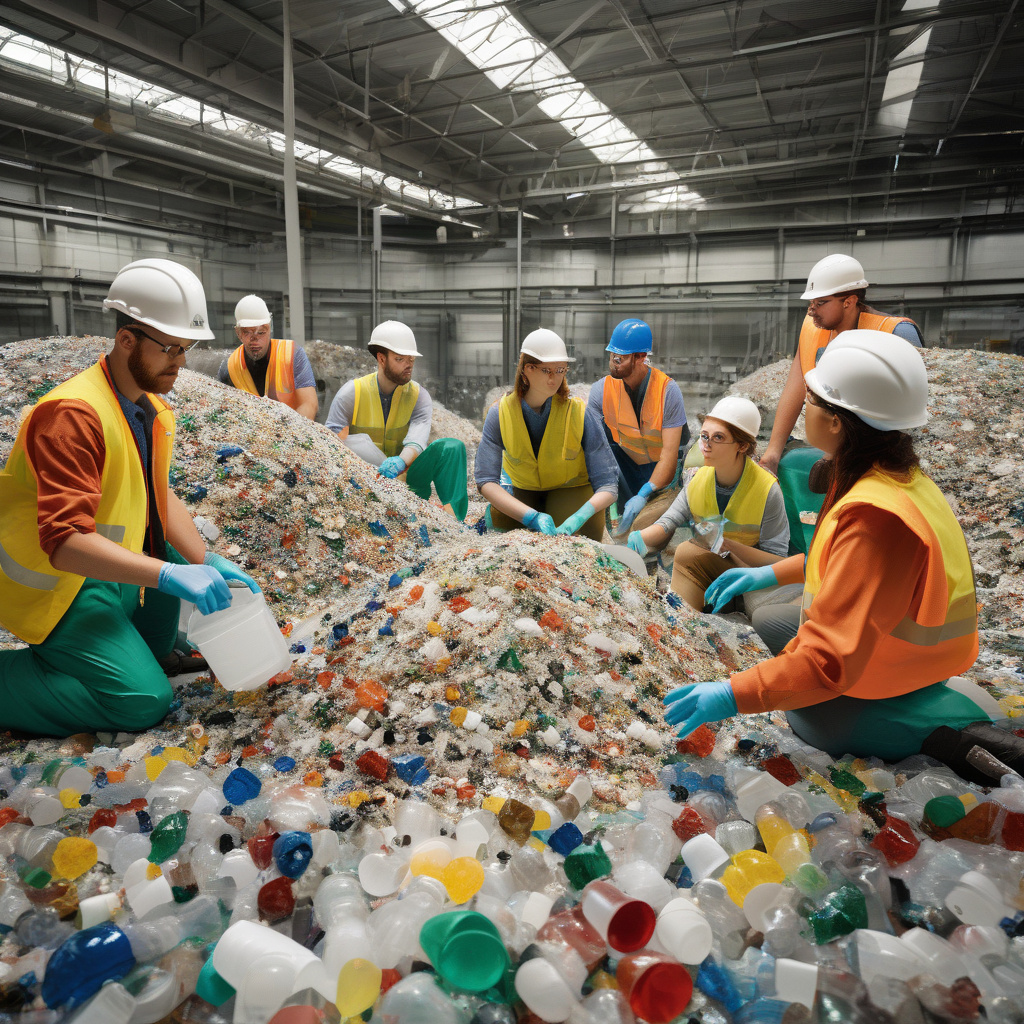Transforming Plastic Waste Management: Innovating Solutions for a Circular Economy
In the age of environmental consciousness, the issue of plastic waste management has taken center stage globally. The Alliance to End Plastic Waste, a non-profit organization comprising companies from across the plastic value chain, has been at the forefront of driving innovative solutions to combat plastic pollution and move towards a circular economy. Their recent Progress Report highlights the scalable and collaborative initiatives aimed at transforming plastic waste management.
One of the key focus areas of the Alliance is to develop and implement advanced recycling technologies that can efficiently convert plastic waste into valuable resources. By leveraging technologies such as pyrolysis, depolymerization, and chemical recycling, the Alliance aims to divert plastic waste from landfills and oceans while creating a closed-loop system where plastics can be recycled and reused repeatedly.
Furthermore, the Alliance to End Plastic Waste is actively involved in promoting the concept of extended producer responsibility (EPR) among its members. EPR places the onus on manufacturers to take responsibility for the entire lifecycle of their products, including proper disposal and recycling. By encouraging EPR practices, the Alliance aims to create a more sustainable approach to plastic production and consumption, where waste is minimized, and recycling is maximized.
In addition to technological advancements and policy advocacy, the Alliance to End Plastic Waste is also committed to driving behavioral change among consumers. Through awareness campaigns, educational programs, and community engagement initiatives, the Alliance seeks to promote responsible plastic use and disposal practices. By fostering a culture of sustainability and environmental stewardship, the Alliance believes that long-term solutions to plastic pollution can be achieved.
One notable example of the Alliance’s innovative approach is Project STOP, a collaboration with the Norwegian government and local partners in Indonesia. Project STOP aims to address the issue of ocean plastic pollution by improving waste management infrastructure in coastal communities. By providing training, resources, and support for waste collection and recycling, Project STOP has been successful in reducing plastic leakage into the ocean and creating economic opportunities for local residents.
The Alliance to End Plastic Waste’s commitment to driving positive change in plastic waste management is a testament to the power of collaboration and innovation in addressing complex environmental challenges. By bringing together stakeholders from the public and private sectors, the Alliance is paving the way for a more sustainable and circular economy where plastic waste is no longer seen as a problem but as a valuable resource.
As we look towards the future, it is clear that transforming plastic waste management requires a multi-faceted approach that combines technological innovation, policy interventions, and community engagement. The Alliance to End Plastic Waste serves as a shining example of how organizations can work together to create a more sustainable and environmentally friendly world.
In conclusion, the journey towards a circular economy for plastic waste management is challenging, but with the dedication and collective efforts of organizations like the Alliance to End Plastic Waste, a brighter and cleaner future is within reach.
#PlasticWaste, #CircularEconomy, #Innovation, #Sustainability, #EnvironmentalProtection












